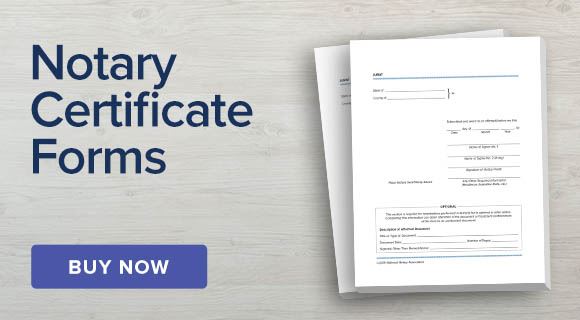
If a signer doesn’t know what type of notarization they want from you, and there's no certificate wording on the document, what do you do? Here are three important tips to follow in this situation:
- Avoid the unauthorized practice of law.
- Ask the signer to choose the type of notarization they want. Do not choose for the signer.
- If the signer is still uncertain, have the signer ask the issuing or receiving agency what Notary certificate is needed for the document.
1. Avoid the unauthorized practice of law.
If you aren’t an attorney, remember that it’s against the law for you to provide unauthorized legal advice. This includes answering simple questions from a signer such as “What notarization do you think I should use here?” or “Which certificate form should I use?”
Giving that sort of advice is a violation of law and can result in being charged with a criminal offense or possibly losing your Notary commission in some states. And, if you give a signer the wrong information and it causes the signer legal problems, you could be forced to pay costly damages in a Notary lawsuit.
When it's not certain what type of notarization the signer needs, always follow these rules:
- Never choose the type of notarization for the signer, even if the signer wants you to.
- Never give a signer advice about the type of notarization a particular document needs. For example, you should never say, “Most power of attorney documents I notarize require an acknowledgment.” You have no way of knowing if the signer’s document is an exception to the norm. Even if it isn’t, you’re unlawfully practicing law because you are applying legal concepts to a signer’s particular situation.
2. Ask the signer to choose the type of notarization. Do not choose for the signer.
While you can’t choose the notarization for a document, the signer can. If the signer can tell you the type of notarization they want, you can proceed from there.
However, most signers are unaware that there is more than one type of notarization or how to distinguish one from another. If the signer isn’t sure what they want, it’s OK to describe the different notarial acts the law authorizes you to perform and allow the signer to pick the one they want. For example, you can describe how acknowledgments and jurats differ and let the signer choose between them. Again, the most important thing is not to make the choice for them.
3. If the signer is still uncertain, have the signer ask the issuing or receiving agency what Notary certificate is needed for the document.
If the signer still isn’t sure which notarization they need, they should contact someone who knows. This could be the individual or agency that issued the document or the one that will receive it. If they can’t provide help, the signer may need to consult with an attorney who can give legal advice about the document.
David Thun is the Editorial Manager at the National Notary Association.


Related Articles:
The most common types of notarizations